Students, staff and faculty members from the UW Department of Environmental & Occupational Health Sciences (DEOHS) were recognized in 2017 by their colleagues in the department and in the UW School of Public Health (SPH) for their contributions to scientific research, education and community service.
School of Public Health awards
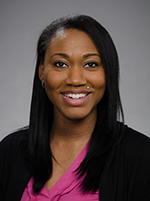
Heather Fowler, Gilbert S. Omenn Award For Academic Excellence: Fowler is recognized for outstanding performance as a scientist, clinician and member of the public health community. Fowler’s research focused on the risk of infectious disease transmission between humans and animals, as well as the occupational risks of injury and illness faced by veterinary and animal care workers. Her research combined field assessments as well as sampling for microbial residues. The scope of her work demonstrated a sweeping command of several topics ranging from field epidemiology and data analysis to risk assessment. She also received a number of awards, including a Bullitt Foundation fellowship and the Martin Luther King Award for community service for her volunteer care of pets for the homeless.
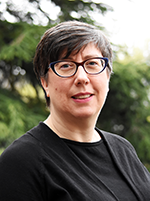
Mary Saucier, SPH Award For Outstanding Staff Service and the DEOHS Distinguished Staff Award: Saucier was recognized by both the department and the school for her contributions. For more than 13 years, she has expertly coordinated research and training grants, supported academic instruction and managed the day-to-day operations of the department. Saucier was integral in securing two large competitive renewals for the Superfund Basic Research Center in 2014.
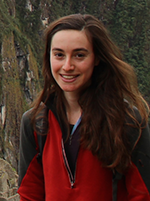
Rachel Shaffer, Communicating Public Health To The Public Award: Shaffer, a PhD student in DEOHS, was recognized for her efforts to effectively communicate public health issues to the general public. Her contributions include blogging, writing op-eds and giving radio interviews in news outlets such as The Seattle Times, National Public Radio and her own blog. Many of her efforts were collaborations with Affiliate Professor Steven Gilbert, as the pair teamed up to raise awareness of the adverse health effects of worker exposures to lead as well as the hazards to the workers’ families.
DEOHS awards
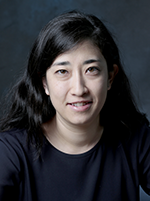
June Spector, Outstanding Faculty Mentor: Spector, an associate professor, was selected for this honor by the department's Graduate Student Advisory Committee. The committee noted Spector’s patience, approachability, educational guidance and technical abilities. Spector was also commended for her efforts to assist students in their transition into postdoctoral fellowships or jobs and to stay on track and achieve milestones. One student commented: “I have come to her many times feeling frustrated and overwhelmed, and always leave our meetings with a renewed sense of energy and focus.”
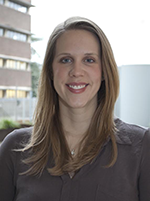
Marissa Baker, Outstanding Phd Student Award: Baker, a PhD student and rising star in occupational hygiene, published a substantial amount of research and established an international reputation even before graduating. She received a competitive F31 fellowship from the National Institute of Environmental Health Sciences. In 2016, Baker was awarded the Award for Young Exposure Scientists from the International Society of Exposure Scientists. Based on her occupational studies of manganese exposures and health effects, she was invited to serve as a committee member for the International Agency for Research on Cancer in reviewing welding fume as a carcinogen.
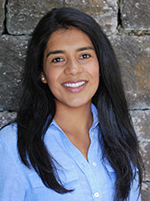
Magali Blanco, Outstanding Master’s Student Award: Blanco achieved a remarkable record of service in the area of public health. She received the top scholar award from the department in 2015. Her thesis research on mechanisms of pesticide spray drift in agricultural settings was novel, challenging science in exposure science and public health. She received the Russell L Castner research award in 2016 in recognition of her scholarship and innovative approach. She volunteered for the women in science negotiation summer camp and worked at a critical care program while at Oregon Health Sciences University. She also participated in a youth mentorship program and provided Spanish translation services for worker training.
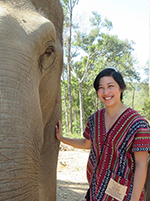
Sara Mar, Outstanding Undergraduate Student: Mar was recognized for her academic success and her commitment to public health. Through the UW pipeline program, she traveled to La Push, WA, each spring break to teach environmental science lessons at the Quileute Tribal School. She also completed research with the Pacific Northwest Agricultural Safety and Health Center, studying dairy worker exposures to pesticides. In 2016, she was selected for a US Public Health Service internship focused on food safety and health and wellness programs with the National Park Service.
DEOHS also recognized two students named as recipients of the Jack Hatlen Scholar Award and the Russell L. Castner Endowed Student Research Fund, which supports student research in environmental health.

Ryan Kouchakji, Jack Hatlen Scholar: Kouchakji was honored for his academic achievement and dedication to protecting the health of vulnerable populations. He volunteered with homeless youth and worked as an emergency medical technician. His commitment to social justice was highlighted through his internship with Public Health – Seattle & King County. He partnered with Environmental Health staff in the emergency preparedness division to conduct interviews in local homeless encampments about environmental public health hazards homeless people face and how these hazards affect acute and chronic health conditions.
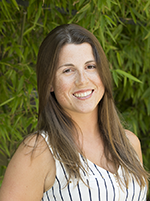
Miriam Calkins, Russell L. Castner Endowed Student Research Fund: As a PhD candidate in Environmental and Occupational Hygiene who concurrently completed a certificate in climate science, Calkins’ doctoral research focused on occupational heat exposure and injury risk in construction workers. Her work has implications for the safety and health of populations exposed to heat and the policies and prioritization of workplace safety and health and climate change adaptation strategies. She worked with business, labor and government to translate her work into improved public health. Calkins also received a fellowship from the UW Program on Climate Change to build on her dissertation work to determine how the risk of occupational heat-related injuries may change in the coming decades in the context of climate change.